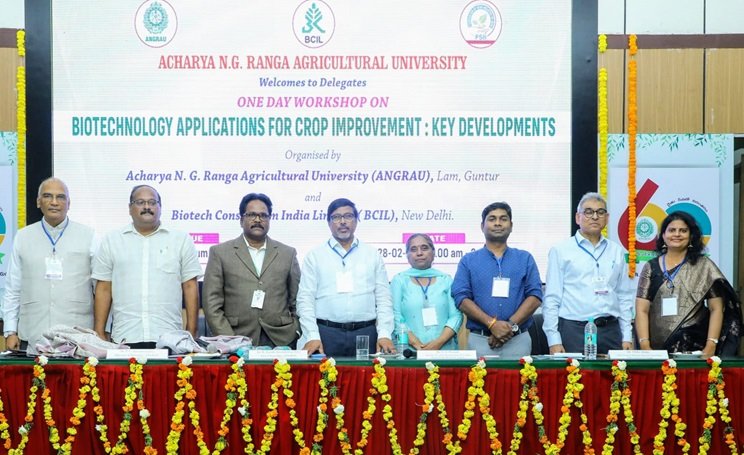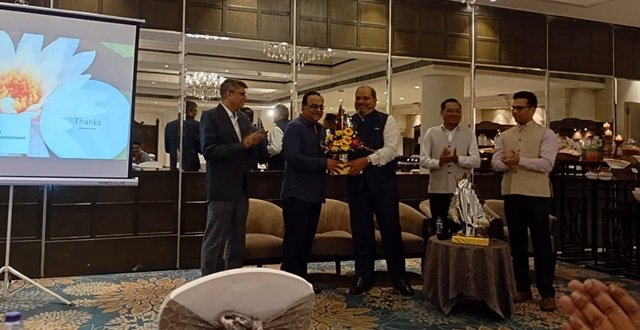India’s Agribiotech Revolution: Innovation, Policy, and the Road to 2030
By Ram Kaundinya, Advisor, Federation of Seed Industry of India & Co-founder, AGVAYA
Indian agriculture stands at a pivotal crossroads, balancing the urgent need for higher productivity with the growing imperatives of sustainability. With a population exceeding 1.4 billion, ensuring food, fibre, feed and fuel security while addressing climate volatility, depleting resources, and pest infestations has become a formidable challenge. Agricultural biotechnology, encompassing genetic engineering, molecular breeding, and gene editing, is emerging as a transformative partner for traditional plant breeding in tackling these issues. By enabling higher yields, climate resilience, and reduced dependency on chemical inputs, biotechnology can join forces with plant breeding in redefining India’s agricultural landscape and equipping farmers with innovative solutions to enhance productivity and livelihoods.
Promise of Biotechnology in Indian Agriculture
The promise of biotechnology in Indian agriculture is evident in the success of high-yielding, climate-resilient crops. Rice varieties like MTU 1232, developed with the Sub1A gene using biotechnological tools, have proven their worth in flood-prone regions, surviving prolonged submergence while maintaining impressive yields. Bt cotton has revolutionised cotton farming, reducing pesticide usage and improving productivity. These innovations highlight the potential of agribiotechnology to address longstanding agricultural challenges.
Since the global introduction of genetically engineered crops in 1996, agriculture has witnessed remarkable gains in productivity. India’s experience with Bt cotton has been a testament to this progress, with studies confirming increased yields and reduced pest-related losses. Gene-editing technologies have opened new frontiers, allowing scientists to develop crops with enhanced resistance to drought, pests, and diseases. These advancements, when integrated with precision agriculture tools such as mechanisation, drones, digitisation and AI-driven analytics, could lead to a paradigm shift in Indian farming.
However, while biotechnology has demonstrated its potential, widespread adoption remains constrained by regulatory and infrastructural challenges. India’s agribiotech industry needs a strong, science-driven regulatory framework that encourages responsible innovation while addressing safety concerns.
Need for a Supportive Regulatory Framework
The need for a clear, science-based regulatory framework that serves the strategic interests of Indian agriculture has never been more pressing. The government’s guidelines published in 2022 exempt two categories of gene-edited crops from stringent GMO regulations, which was a step in the right direction. Greater policy support is required to ensure seamless approvals and commercialisation. A predictable regulatory environment will encourage private sector investment and drive further innovation in the sector.
Equally crucial is investment in research and development. Strengthening collaboration between public institutions, private enterprises, and global research bodies will accelerate breakthroughs in agribiotechnology. Public-private partnerships must be encouraged to bring biotech innovations to smallholder farmers, who form the backbone of Indian agriculture. At the same time, farmer education initiatives should be ramped up to dispel misinformation and build confidence in biotech solutions.
Investing in Research and Infrastructure
For agribiotechnology to realise its full potential, India must invest significantly in research infrastructure. Agricultural universities and biotech research institutions must be empowered with funding, modern laboratories, and collaboration opportunities with international research bodies. Innovation hubs and biotech incubators should be established to foster startups that work on genetic advancements, crop improvement, and biofortified crops. One of the key areas is weed management, which is becoming more expensive due to increasing labour costs. Yield losses due to yields are more than 20 per cent in many crops, as per a recent report. This problem can be tackled with the help of biotechnology.
By Ram Kaundinya, Advisor, Federation of Seed




